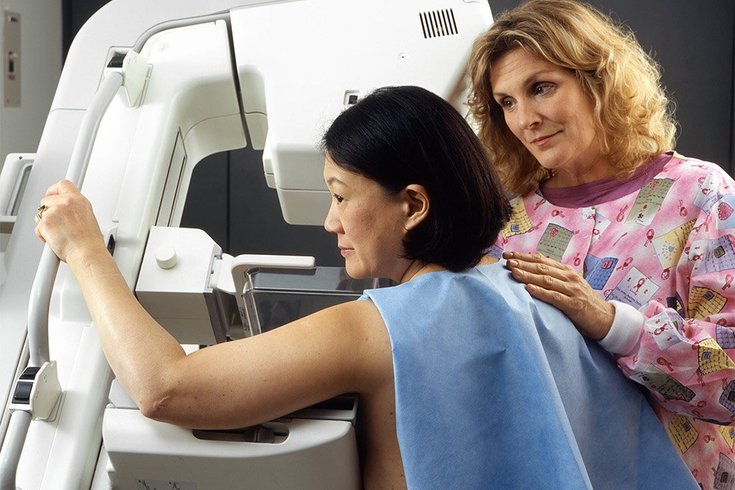
April 10, 2024
 Rhoda Baer; National Cancer Institute/Wikimedia
Rhoda Baer; National Cancer Institute/Wikimedia
About 1 in 3 socially vulnerable women do not get regular mammograms, a new CDC study finds. The screening is critical for the early detection and treatment of breast cancer.
Health-related social needs are keeping a significant portion of women from staying up-to-date with their mammograms, which are crucial for the early detection and treatment of breast cancer, according to a new study from the U.S. Centers for Disease Control and Prevention.
About one-third of women ages 50-74 who were experiencing at least three adverse social conditions, such as social isolation, dissatisfaction with life and lack of health insurance, do not get regular mammograms, the study found. Women who lost their jobs or had their hours reduced, lacked transportation or received food stamps also were less likely to get regular mammograms.
Research has shown that regular mammograms can help detect breast cancer as many as three years before it is felt. More than 40,000 women die from breast cancer each year, according to the latest statistics from the U.S. Centers of Disease Control and Prevention.
For the new study, CDC researchers analyzed data from an annual, nationwide survey of 400,000 adults about their health issues. The more health-related social needs a woman had, the less likely she was to receive a mammogram.
The researchers recommended that public health programs and health care providers develop ways to assess health-related social needs that pose barriers to routine medical care and find interventions to help surmount them.
"Identifying these challenges and coordinating efforts between health care, social services, community organizations, and public health to help address these needs could improve efforts to increase breast cancer screening and ultimately save these tragic losses to families," said Dr. Debra Houry, the CDC's chief medical officer.
During the study timeframe, the U.S. Preventive Services Task Force, a volunteer, national panel of experts in disease prevention and evidence-based medicine, recommended that women 50-74 have a mammogram every two years and that women 40-49 should talk to their doctors to decide when to begin breast cancer screening.
The task force is now recommending that all women 40 and older get mammograms every two years.
Recent research has shown that breast cancer diagnoses have been rising in younger women. Black women are more likely to get breast cancer earlier and 40% more likely to die from breast cancer than white women.